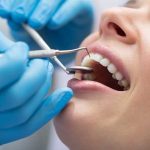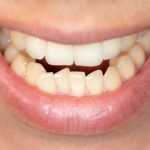The Dental Dangers of Excessive Sodium Consumption: Effects on Teeth Explained
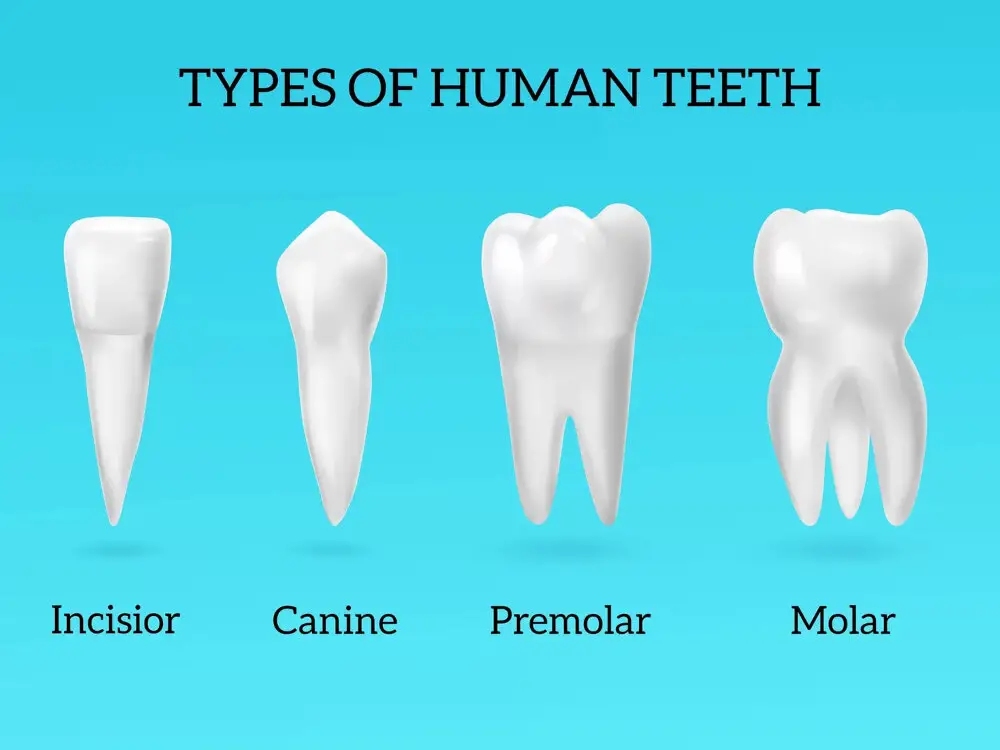
Excessive sodium consumption is a major issue that affects the health of people all over the world. Many people are unaware of the potential dangers of consuming too much sodium, which can lead to a variety of health problems. One area that is often overlooked in discussions about sodium consumption is its impact on dental health. In this article, we will explore the dental dangers of excessive sodium consumption and explain the effects it can have on teeth. Sodium is an essential mineral that helps regulate the body’s fluid balance and nerve function. However, consuming too much sodium can lead to serious health problems, including high blood pressure, heart disease, and stroke. In addition, excessive sodium consumption can also have a negative impact on dental health. Sodium can weaken tooth enamel, making teeth more vulnerable to decay and cavities. It can also contribute to the development of gum disease, which can lead to tooth loss if left untreated. In this article, we will delve deeper into the dental dangers of excessive sodium consumption and explain how it can affect the health of your teeth.
Sodium consumption is an essential part of our diet, but excessive intake can lead to various health issues, including dental problems. Sodium plays a crucial role in regulating body fluids, maintaining blood pressure, and transmitting nerve impulses. However, excessive sodium consumption can lead to dehydration, which can cause dry mouth, a condition that increases the chances of dental decay and gum disease. The consumption of high-sodium processed foods and sugary drinks can also increase the production of harmful bacteria in the mouth, leading to tooth decay and erosion. Therefore, it is essential to maintain a balanced diet and limit the intake of high-sodium foods to prevent dental problems and promote overall health.
Excessive sodium consumption has a significant impact on dental health. The high levels of sodium in the diet can lead to a decrease in saliva production, which is essential for neutralizing harmful acids in the mouth. This decrease in saliva production can also cause dry mouth, leading to increased plaque buildup and a higher risk of tooth decay. Additionally, a high-sodium diet can increase blood pressure, leading to gum disease and tooth loss. To maintain good dental health, it is crucial to limit sodium intake and opt for a balanced diet rich in fruits, vegetables, and whole grains. Regular dental check-ups and professional cleanings are also essential for preventing and treating any dental issues related to excessive sodium consumption.
Awareness plays a crucial role in our daily lives, especially when it comes to our health. In the case of excessive sodium consumption and its effects on teeth, being aware of the risks and consequences can help prevent potential dental dangers. Understanding the negative impact that high sodium intake can have on tooth enamel and gum health can motivate individuals to make healthier dietary choices and take necessary precautions to protect their oral health. Moreover, awareness can also encourage people to seek professional dental care and advice to address any existing dental issues caused by excessive sodium consumption. Therefore, raising awareness about the dental dangers of high sodium intake is essential in promoting preventive dental care and maintaining good oral health.
The Role of Sodium in Tooth Decay

Sodium is a mineral that is essential for human health. However, excessive consumption of sodium can have negative effects on dental health. One of the most significant dental dangers of excessive sodium consumption is tooth decay. Tooth decay is caused by bacteria in the mouth that create acid when they come into contact with sugar. The acid then attacks the tooth enamel, causing decay. Sodium can contribute to tooth decay by increasing the acidity in the mouth. This can happen when sodium is consumed in the form of salty snacks and processed foods, which are often high in sugar. In addition to contributing to tooth decay, excessive sodium consumption can also lead to other dental problems. For example, consuming too much sodium can cause gum disease. Gum disease is a condition that affects the tissues surrounding the teeth, causing them to become inflamed and infected. This can lead to tooth loss if left untreated. Additionally, excessive sodium consumption can cause dry mouth, which can also contribute to dental problems. Dry mouth occurs when there is not enough saliva in the mouth to wash away bacteria and neutralize acid. Overall, it is important to be mindful of sodium consumption and its effects on dental health.
Excessive sodium consumption can lead to tooth decay due to the dehydrating effect it has on the body. When there is an imbalance of sodium in the body, it draws water from the cells, including those in the mouth. This lack of moisture in the mouth can cause a decrease in saliva production, which is crucial in neutralizing acids and washing away harmful bacteria that can lead to tooth decay. Additionally, high sodium intake can lead to high blood pressure, which can damage blood vessels in the gums and affect the overall health of the teeth and gums. Thus, it is important to limit the consumption of sodium to maintain good oral health.
Saliva plays a crucial role in maintaining the pH balance in our mouth. It contains bicarbonate ions that can neutralize acids produced by bacteria in dental plaque or ingested through our diet. When we consume food or drinks high in sodium, it can disrupt the pH balance, leading to an acidic environment that can erode tooth enamel and increase the risk of cavities. However, saliva helps to counteract this effect by neutralizing the acids and promoting remineralization. Therefore, a healthy flow of saliva is essential for maintaining optimal dental health and preventing the harmful effects of excessive sodium consumption on our teeth.
Excessive sodium consumption has been found to have a negative impact on saliva production, which can lead to a variety of dental dangers. Saliva is essential for maintaining oral health by neutralizing harmful acids and washing away food particles and bacteria that cause tooth decay and gum disease. However, when sodium levels are too high, salivary gland function can be impaired, resulting in decreased saliva production. This not only increases the risk of tooth decay and gum disease but also contributes to bad breath, as bacteria are left to proliferate in the mouth. Therefore, it is important to monitor sodium intake and maintain a balanced diet to ensure optimal oral health.
Gum Disease and Excessive Sodium Consumption
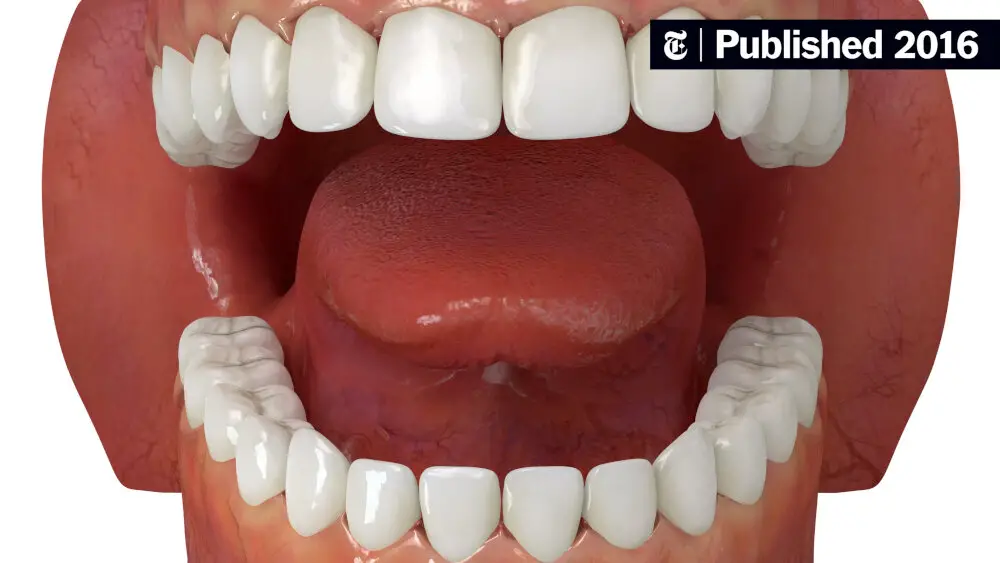
Gum disease and excessive sodium consumption are two interconnected dental issues that can wreak havoc on oral health. Excessive sodium intake can lead to high blood pressure, which increases the risk of gum disease. Gum disease, also known as periodontitis, is a bacterial infection that affects the gums and bones that support the teeth. If left untreated, it can lead to tooth loss and other serious health problems. Sodium consumption can exacerbate gum disease because high levels of sodium can cause inflammation in the body, leading to tissue damage and reduced blood flow. This can weaken the immune system and make it harder for the body to fight off infections, including gum disease. Additionally, sodium can weaken the bones that support the teeth, making them more susceptible to damage and decay. To prevent gum disease, it is important to limit sodium intake and maintain good oral hygiene habits, such as brushing and flossing regularly and visiting the dentist for routine checkups.
Gum disease, also known as periodontal disease, is a bacterial infection that affects the gum tissue and bone supporting the teeth. It occurs when plaque, a sticky film of bacteria, builds up on teeth and gums, leading to inflammation and eventual damage to the surrounding tissue. If left untreated, gum disease can cause tooth loss and increase the risk of other health issues, such as heart disease and diabetes. Symptoms of gum disease include red, swollen, and bleeding gums, bad breath, and loose teeth. Regular dental check-ups, brushing twice a day, flossing daily, and reducing sodium intake can help prevent and manage gum disease.
Excessive sodium consumption has been linked to various health concerns, including high blood pressure, heart disease, and stroke. However, recent studies have also shown a direct correlation between high sodium intake and poor gum health. Sodium-rich diets can lead to dehydration, which in turn can cause dry mouth and reduced saliva flow. This lack of saliva can result in an increase in harmful bacteria in the mouth, leading to gum inflammation and gum disease. Additionally, high sodium intake can cause the body to retain water, leading to swollen gums and an increased risk of periodontitis. It is important to monitor your sodium intake and maintain good oral hygiene practices to prevent these negative effects on your gum health.
Gum disease, also known as periodontal disease, is a bacterial infection that affects the tissues surrounding and supporting teeth. One of the primary causes of gum disease is excessive sodium consumption, which can lead to inflammation and damage to the gums. When left untreated, this condition can progress and result in tooth loss. As the gums become inflamed and infected, they begin to pull away from the teeth, creating pockets where bacteria can thrive. Over time, this can cause the teeth to become loose and eventually fall out. Therefore, it is crucial to maintain good oral hygiene and limit sodium intake to prevent gum disease and tooth loss.
Enamel Erosion and Excessive Sodium Consumption

Enamel erosion is a serious dental issue that can occur due to a variety of factors, including excessive sodium consumption. The enamel is the outermost layer of the teeth and is responsible for protecting the sensitive dentin and pulp underneath. When the enamel erodes, the teeth become more vulnerable to decay, sensitivity, and even tooth loss. Excessive sodium intake can lead to enamel erosion because it causes the mouth to become dry, which reduces saliva production. Saliva is essential for maintaining a healthy oral environment because it helps to neutralize harmful acids and wash away food particles. In addition to causing enamel erosion, excessive sodium consumption can also lead to other dental problems. For example, it can increase the risk of gum disease, which is a common condition that causes inflammation and infection in the gums. Gum disease can lead to tooth loss if left untreated, so it is essential to take steps to prevent it. One way to do this is to reduce sodium intake and maintain good oral hygiene habits, such as brushing and flossing regularly and visiting the dentist for regular checkups and cleanings. By taking care of your teeth and gums, you can reduce your risk of dental problems caused by excessive sodium consumption and enjoy a healthy, beautiful smile for years to come.
Enamel erosion is a dental condition that occurs when the outer layer of the teeth, known as the enamel, is worn away due to various factors such as excessive consumption of sodium, acidic foods and drinks, and poor oral hygiene. When the enamel erodes, the teeth become weaker and more vulnerable to decay, discoloration, and sensitivity. This can also lead to more serious dental problems such as cavities and gum disease. Enamel erosion is a slow and gradual process that can take months or even years to become noticeable. Therefore, it is crucial to take preventive measures such as reducing the intake of sodium and acidic foods and drinks, practicing good oral hygiene, and seeking professional dental care to prevent further damage to the teeth.
Sodium is a mineral that is essential for the body’s proper functioning, but excessive consumption can lead to various health problems, including dental issues. When we consume foods and drinks that are high in sodium, it can cause enamel erosion. The enamel is the hard, protective outer layer of our teeth, and when it erodes, it exposes the softer inner layers of the teeth, making them more vulnerable to decay and sensitivity. Sodium can also cause dry mouth, which reduces the production of saliva that helps neutralize acid in the mouth and prevent enamel erosion. Therefore, it is crucial to limit our sodium intake to maintain healthy teeth and gums.
Enamel erosion is a serious dental problem that can have a severe impact on tooth sensitivity. When the hard, protective layer of enamel covering the teeth is worn down or damaged, the underlying sensitive dentin layer is exposed. This can lead to increased sensitivity to hot and cold temperatures, sweet and sour foods, and even touch. Enamel erosion can be caused by a variety of factors, including excessive sodium consumption, acidic foods and drinks, and poor dental hygiene. If left untreated, enamel erosion can lead to further dental problems, such as tooth decay and gum disease. It is essential to take care of your teeth and gums, limit your sodium intake, and seek professional dental care if you experience enamel erosion or tooth sensitivity.
How to Reduce Sodium Consumption for Better Dental Health
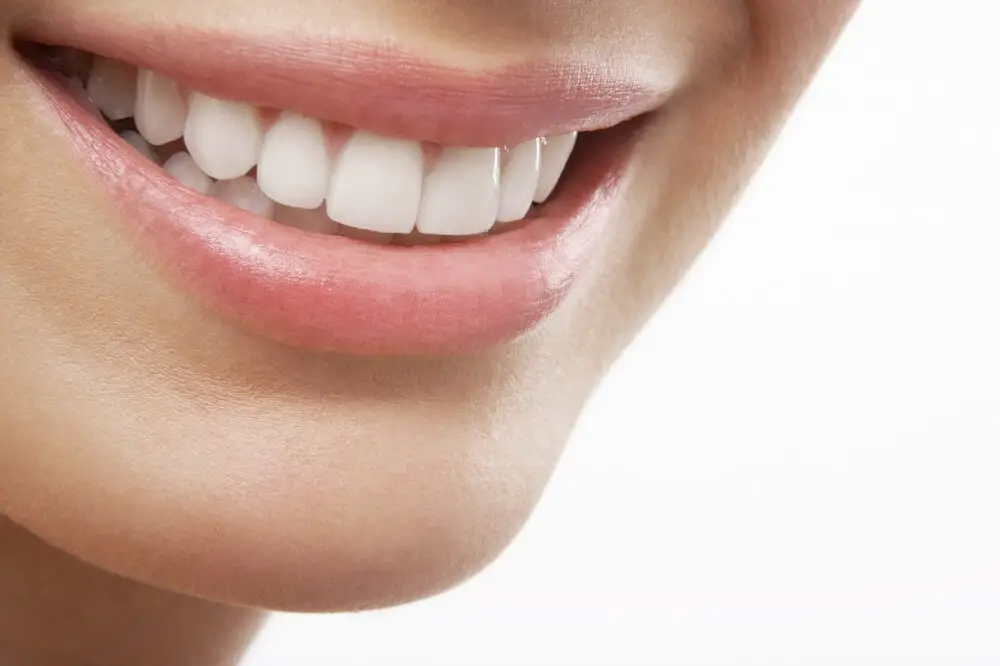
Excessive sodium consumption can have a detrimental effect on our dental health. High sodium intake can lead to dehydration, causing dry mouth and reduced saliva production. Saliva plays a crucial role in neutralizing the acids produced by bacteria in the mouth, which can lead to tooth decay and gum disease. Therefore, reducing sodium consumption can help maintain optimal oral health. One way to decrease sodium intake is by cutting back on processed and packaged foods, which tend to be high in sodium. Opting for fresh fruits and vegetables, lean meats, and whole grains can provide essential nutrients without the added salt. Another way to reduce sodium consumption is by reading food labels carefully. Many foods that we may not expect to be high in sodium, such as bread, condiments, and even some breakfast cereals, can contain significant amounts. Choosing low-sodium options or making homemade versions of these foods can help reduce sodium intake. Additionally, avoiding adding salt to meals while cooking or at the table can significantly decrease sodium consumption. By taking these simple steps to reduce sodium intake, we can maintain optimal dental health and prevent the negative effects of excessive sodium consumption on our teeth.
Reducing sodium intake is a vital step in improving dental health. One tip is to read food labels carefully and choose low-sodium options whenever possible. Another is to flavor meals with herbs and spices instead of salt. Additionally, cooking from scratch using fresh ingredients can help control the amount of sodium in meals. It’s also important to limit processed and packaged foods, which are often high in sodium. Finally, drinking plenty of water can help flush out excess sodium and prevent dehydration, which can exacerbate dental problems. By following these tips, individuals can take control of their sodium intake and improve their overall oral health.
Excessive sodium consumption can cause severe damage to teeth, including tooth decay, gum disease, and enamel erosion. To combat this problem, it is essential to explore alternative flavoring options. One such option is to use herbs and spices, such as basil, oregano, and thyme, to add flavor to meals. These options provide a healthy alternative to sodium while adding a unique and delicious taste to food. Additionally, incorporating citrus fruits, such as lemons and limes, can provide a tangy flavor that enhances the taste of food without adding harmful amounts of sodium. By exploring alternative flavoring options, individuals can protect their dental health while still enjoying flavorful meals.
Adopting a low-sodium diet can be beneficial for overall health as it helps reduce the risk of developing high blood pressure, heart disease, and stroke. Excessive sodium consumption can also have detrimental effects on dental health, damaging the enamel of teeth and increasing the risk of cavities. By reducing the intake of sodium, individuals can improve their overall health and maintain healthy teeth and gums. Additionally, a low-sodium diet may also have positive effects on weight management, kidney function, and overall hydration levels. It is important to be mindful of the amount of sodium in our diet and make conscious efforts to reduce it in order to reap the benefits of a healthier lifestyle.
Excessive sodium consumption can lead to various dental dangers, including tooth decay, gum disease, and enamel erosion. It is found that high levels of sodium in the diet can cause an increase in the acidity of the saliva, which can dissolve the protective enamel layer of the teeth, thereby leading to tooth decay. Additionally, a diet rich in sodium can lead to dehydration, which can cause a decrease in saliva production, leading to dry mouth and increased risk of gum disease. Furthermore, the consumption of salty foods and drinks can cause a buildup of plaque on the teeth, which can increase the risk of tooth decay and gum disease. Therefore, it is important to limit sodium intake to prevent these dental dangers and maintain good oral health.
Reducing sodium intake is crucial for maintaining good dental health as excessive sodium consumption can lead to a host of dental problems. High sodium intake can cause dehydration, which can lead to dry mouth, a condition that can contribute to tooth decay and gum disease. Additionally, high sodium intake can increase the risk of periodontitis, a serious gum infection that can lead to tooth loss. Furthermore, consuming foods high in sodium can also contribute to the erosion of tooth enamel, leaving teeth susceptible to decay and sensitivity. Overall, reducing sodium intake is an effective way to protect and maintain healthy teeth and gums.
It’s time to take charge of your dental health and make positive changes for your overall well-being. Excessive sodium consumption can have detrimental effects on your teeth and gums, leading to decay, inflammation, and other dental problems. However, by taking action and making conscious choices to reduce your sodium intake and improve your oral hygiene, you can prevent these issues and maintain a healthy smile. Don’t let the dangers of excessive sodium consumption control your dental health – take control and make the necessary changes for a brighter, healthier, and happier smile.
Conclusion
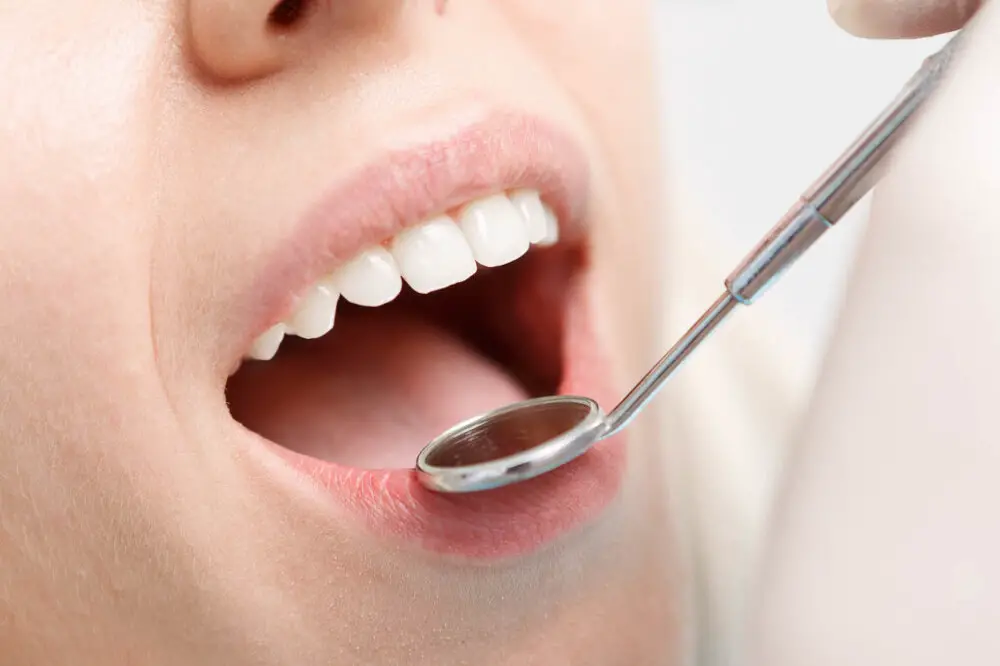
In conclusion, the detrimental effects of excessive sodium consumption on dental health cannot be overstated. From erosion of tooth enamel to increased risk of gum disease and tooth decay, the consequences of a high-sodium diet can be severe and long-lasting. It is crucial for individuals to be aware of the sodium content in their food and make conscious choices to limit their intake. Maintaining good oral hygiene practices, such as brushing and flossing regularly, can also help to mitigate the negative effects of sodium on teeth. By taking proactive steps to protect their dental health, individuals can ensure a brighter, healthier smile for years to come.




